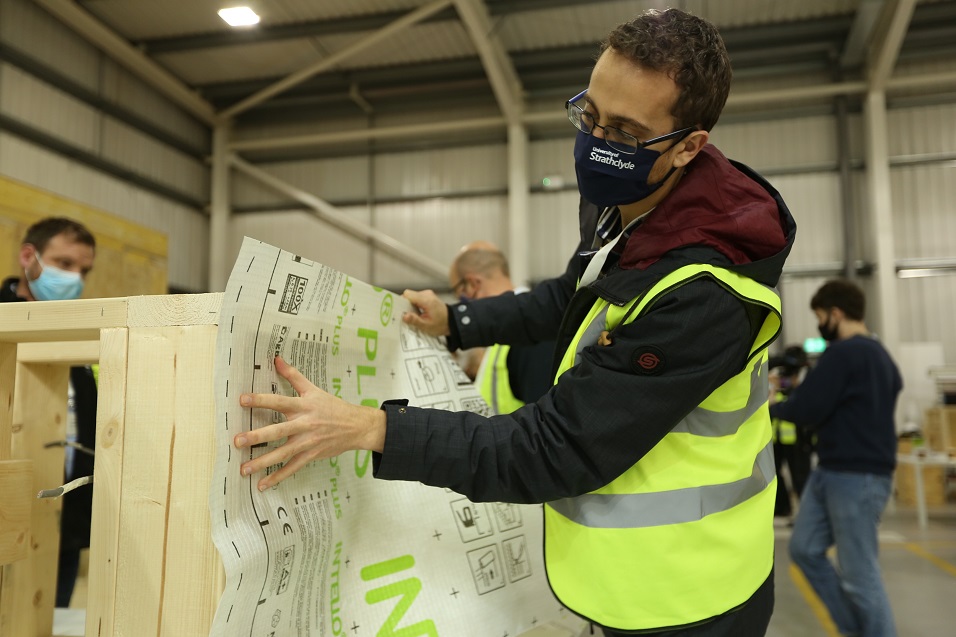CSIC provides fully funded training for up to 500 construction professionals
Construction Scotland Innovation Centre (CSIC) is to expand its successful Low Carbon Learning programme with the launch of a second free-to-attend programme focused on the fabric and structure of sustainable buildings.

Supported by Skills Development Scotland, through more than £175,000 from the National Transition Training Fund, CSIC is offering valuable training for people in the construction sector looking to upskill and reskill, supporting a Scotland-wide transition towards a zero-carbon built environment.
Up to 500 places are available for Low Carbon Learning: Fabric and Structure, which launches with an online webinar on March 29 and will run until July. The course covers four core areas critical to the future of the sector.
A fabric-first module will focus on design decisions that can help to reduce energy consumption, while a carbon accounting module will highlight the need for environmental data to be calculated for each project. The role of sustainable insulation materials, including homegrown alternatives, and mass timber solutions will also form a core part of the course.
Training includes both online learning and live demonstrations at CSIC’s Innovation Factory in Hamilton – home to the UK’s only commercial-scale vacuum press for manufacturing cross-laminated and glue-laminated timber components, and a Pilot Insulation Line for trialling new insulation materials.

The launch of the programme follows the success of the first tranche of Low Carbon Learning which was Scotland’s first publicly funded training programme in Passivhaus and EnerPHit, the globally recognised approaches for the design, construction and retrofit of highly energy-efficient buildings.
Caitriona Jordan, head of retrofit programmes at CSIC, said: “Reskilling and upskilling will be a core element of the construction sector’s transition to zero carbon, and we want to help provide the knowledge and experience workers need to help deliver the wide range of new projects and energy-efficient retrofits required.
“This new course focuses on the fabric and structure of buildings, including important training on carbon accounting that, although complex, is only going to become more relevant, as well as highlighting alternative homegrown construction materials. Increased green skills across the sector will help to ensure we have a future-proofed workforce that is well-equipped to reduce the carbon footprint of our built environment.”
Elaine Ellis, skills planning manager – construction at Skills Development Scotland, said: “The construction sector will play a critical role as we transition to become a net-zero economy. This programme will provide practical tools and knowledge to help the construction sector to upskill and adapt their practices to meet the needs of net-zero. We look forward to working with CSIC as this programme is developed and delivered.”

















